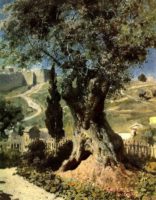 When I sat down to read another book about the adventures of a detective nun, I did not expect anything special from it (the book). Just wanted to “rest” after a bit of heavyweight Eco. Basically, that’s what happened. It was easy to read, I did not want to stop, I did not have time to get bored. But … What will be the “but”? At the beginning of each Akunin’s book, I sincerely admire the author. With each new paragraph, he “hangs” more and more new topics on the plot, and each next one is more interesting and larger than the previous one. The prospect of diving into the mystery is fascinating and calls to swallow page after page.But very little time passes, I notice that I have already read 2/3 of the book, and the pile of ideas has just stopped growing. He can’t make it :(
When I sat down to read another book about the adventures of a detective nun, I did not expect anything special from it (the book). Just wanted to “rest” after a bit of heavyweight Eco. Basically, that’s what happened. It was easy to read, I did not want to stop, I did not have time to get bored. But … What will be the “but”? At the beginning of each Akunin’s book, I sincerely admire the author. With each new paragraph, he “hangs” more and more new topics on the plot, and each next one is more interesting and larger than the previous one. The prospect of diving into the mystery is fascinating and calls to swallow page after page.But very little time passes, I notice that I have already read 2/3 of the book, and the pile of ideas has just stopped growing. He can’t make it :( For the couple of hundreds of pages which have remained up to the end, the author for certain will not be able to open all touched upon subjects. I remember it was the same last time.After all, this is an easy genre – a quick change of scenery and ideologies is vital in order to prevent the reader from recovering. So it can not be called a disadvantage. Akunin – well done, works very well. Unlike Hollywood screenwriters, he does not spread dead-end plot lines left and right, essentially disposable coasters, under a spectacular scene.On the contrary, from the first pages I know for sure that EVERY gun hung by the author on the stage will definitely shoot. There are no superfluous details, and unoccupied characters in the plot. The narrative will rush through time and space at great speed, laying frantic turns among the set scenery. The light of the spotlight for a moment snatches another piece of evidence out of the darkness, the crazy locomotive touches the edge of the world’s problem with the edge of its wing and … rushes on.
For the couple of hundreds of pages which have remained up to the end, the author for certain will not be able to open all touched upon subjects. I remember it was the same last time.After all, this is an easy genre – a quick change of scenery and ideologies is vital in order to prevent the reader from recovering. So it can not be called a disadvantage. Akunin – well done, works very well. Unlike Hollywood screenwriters, he does not spread dead-end plot lines left and right, essentially disposable coasters, under a spectacular scene.On the contrary, from the first pages I know for sure that EVERY gun hung by the author on the stage will definitely shoot. There are no superfluous details, and unoccupied characters in the plot. The narrative will rush through time and space at great speed, laying frantic turns among the set scenery. The light of the spotlight for a moment snatches another piece of evidence out of the darkness, the crazy locomotive touches the edge of the world’s problem with the edge of its wing and … rushes on. I have a version. Akunin makes advertisements, releases stunning video trailers designed to lure the reader into the world of serious literature. Although I read a lot, I’m not familiar with the classics – a school curriculum that has long been weathered from my head. Akunin’s digests are intriguing to me, and so am I. They probably warm other, more savvy readers with warm moments of recognition. It’s nice to meet old acquaintances, even if the meeting took place in the circus.By the way, about friends. Templars, raids into the Holy Land, issues of anti-Semitism, pseudo-homosexuals, magic rituals and a passion for dungeons Foucault”‘> “Foucault’s Pendulum” (previous “my” book), very smoothly moved into “Pelagia and the Red Rooster”. Although, I’m lying – the Templars didn’t get to Akunin (two on one horse can’t ride far). And everything else came in handy for the new author. The puzzle continues to grow.And a little more about friends. Akunin taught his readers to easily part with the heroes. Chick-chick and no. The hero died a heroic death. This happened so often that my reader’s heart hardened and stopped mourning my favorite characters… Boris, why did you kill Berdichevsky? In the last book, he became so cool!P.S. Big burr Christ is so cute. I wonder why Akunin came up with this detail? To the last, I struggled with the temptation to recognize in Manuil the ever-young Vladimir Ilyich, although apart from burriness, no other common features were noticed among these prophets.P.P.S.The image of Jesus in contemporary Russian literature is discussed in A.M. Lobina.
I have a version. Akunin makes advertisements, releases stunning video trailers designed to lure the reader into the world of serious literature. Although I read a lot, I’m not familiar with the classics – a school curriculum that has long been weathered from my head. Akunin’s digests are intriguing to me, and so am I. They probably warm other, more savvy readers with warm moments of recognition. It’s nice to meet old acquaintances, even if the meeting took place in the circus.By the way, about friends. Templars, raids into the Holy Land, issues of anti-Semitism, pseudo-homosexuals, magic rituals and a passion for dungeons Foucault”‘> “Foucault’s Pendulum” (previous “my” book), very smoothly moved into “Pelagia and the Red Rooster”. Although, I’m lying – the Templars didn’t get to Akunin (two on one horse can’t ride far). And everything else came in handy for the new author. The puzzle continues to grow.And a little more about friends. Akunin taught his readers to easily part with the heroes. Chick-chick and no. The hero died a heroic death. This happened so often that my reader’s heart hardened and stopped mourning my favorite characters… Boris, why did you kill Berdichevsky? In the last book, he became so cool!P.S. Big burr Christ is so cute. I wonder why Akunin came up with this detail? To the last, I struggled with the temptation to recognize in Manuil the ever-young Vladimir Ilyich, although apart from burriness, no other common features were noticed among these prophets.P.P.S.The image of Jesus in contemporary Russian literature is discussed in A.M. Lobina.
